Higher Education Programs
The National Institute of Aerospace (NIA) works alongside the National Aeronautics Space Administration (NASA), the Federal Aviation Administration (FAA), and other STEM industry professionals to provide university-level competitions that test the limits of possibility. NIA has managed a wide repertoire of competition programs for NASA which currently include: the Revolutionary Aerospace Systems Concepts – Academic Linkages (RASC-AL) Aerospace Competition, The Human Lander Challenge (HuLC), the Break-through, Innovative, and Game-changing (BIG) Idea Challenge, the Gateways to Blue Skies Competition, and the RASC-AL Special Edition Challenges. NIA also regularly manages higher education engineering and/or design challenges for the FAA, which in the past have included the FAA Challenge Student Competition, the FAA Data Challenge, and the FAA Traffic Flow Management – Application Integration Design (TFM-AID) Challenge. Competitions are managed by NIA engage university-level students at U.S. based institutions to develop pioneering ideas and concepts pertaining to the aerospace and/or aeronautic industry.
Competitions
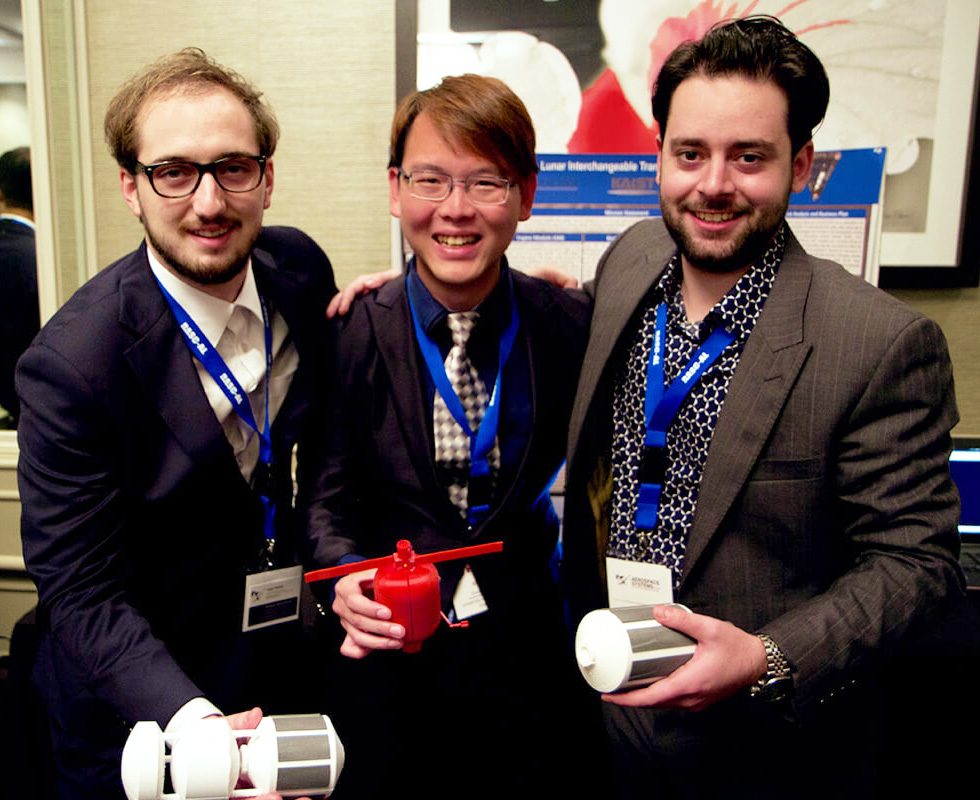
RASC-AL AEROSPACE CONCEPTS COMPETITION
NASA’s RASC-AL competitions fuel innovation for aerospace systems concepts, analogs, and technology prototyping by bridging gaps through university engagement. The RASC-AL Aerospace Concepts Competition is open to undergraduate and graduate college students studying fields with applications to human space exploration (i.e., aerospace, bio-medical, electrical, and mechanical engineering; and life, physical, and computer sciences). RASC-AL projects allow students to incorporate their coursework into real aerospace design concepts and work together in a team environment. Interdisciplinary teams are encouraged. Through RASC-AL Aerospace Concepts, teams and their faculty advisors will design innovative solutions with supporting original engineering and analysis in response to one of several themes that change from year to year. Based on a review of competitive proposals responding to one of those themes, 12-15 teams are annually selected to compete at the summer RASC-AL Forum in Cocoa Beach, Florida. At the Forum, the teams present more fully developed concepts to a panel of NASA and industry subject matter experts in oral and poster presentations. Each finalist team receives a monetary award to facilitate full participation in the RASC-AL Forum. The teams with the top two winning papers at the Forum are invited to present their design projects to industry experts at a major aerospace conference that year (additional travel stipends provided).
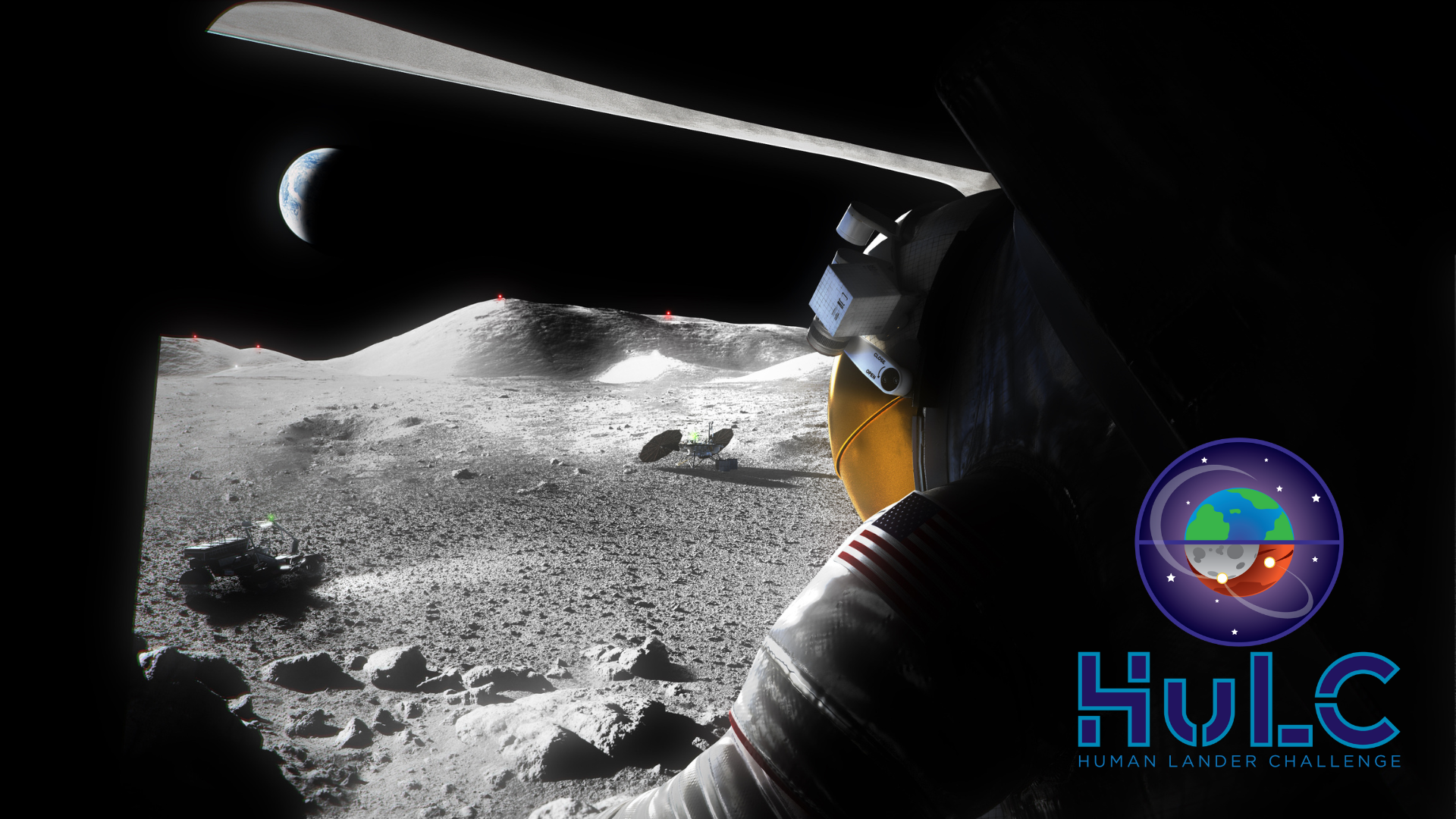
HUMAN LANDER CHALLENGE (HULC)
The Federal Aviation Administration sponsors the FAA Challenge: Smart Airport Student Competition (“Smart Airport Challenge”) to recognize students with the ability to demonstrate innovative thinking focused on improving the efficiency and effectiveness of smart technology in and around the airport environment while enhancing the overall traveling experience. The FAA intends to incentivize university-level students at accredited U.S.-based colleges and universities to think creatively in developing solutions to transportation technology challenges while addressing the human factors aspects of the traveler’s experience, and to share those innovations with the broader community.
For the 2021 Smart Airport Challenge, universities should consider the cutting-edge needs of the FAA and smart airports of the future, focusing on key emerging technology areas of health-smart airports, Unmanned Aerial Systems (UAS), data analytics, and autonomous robotics systems.
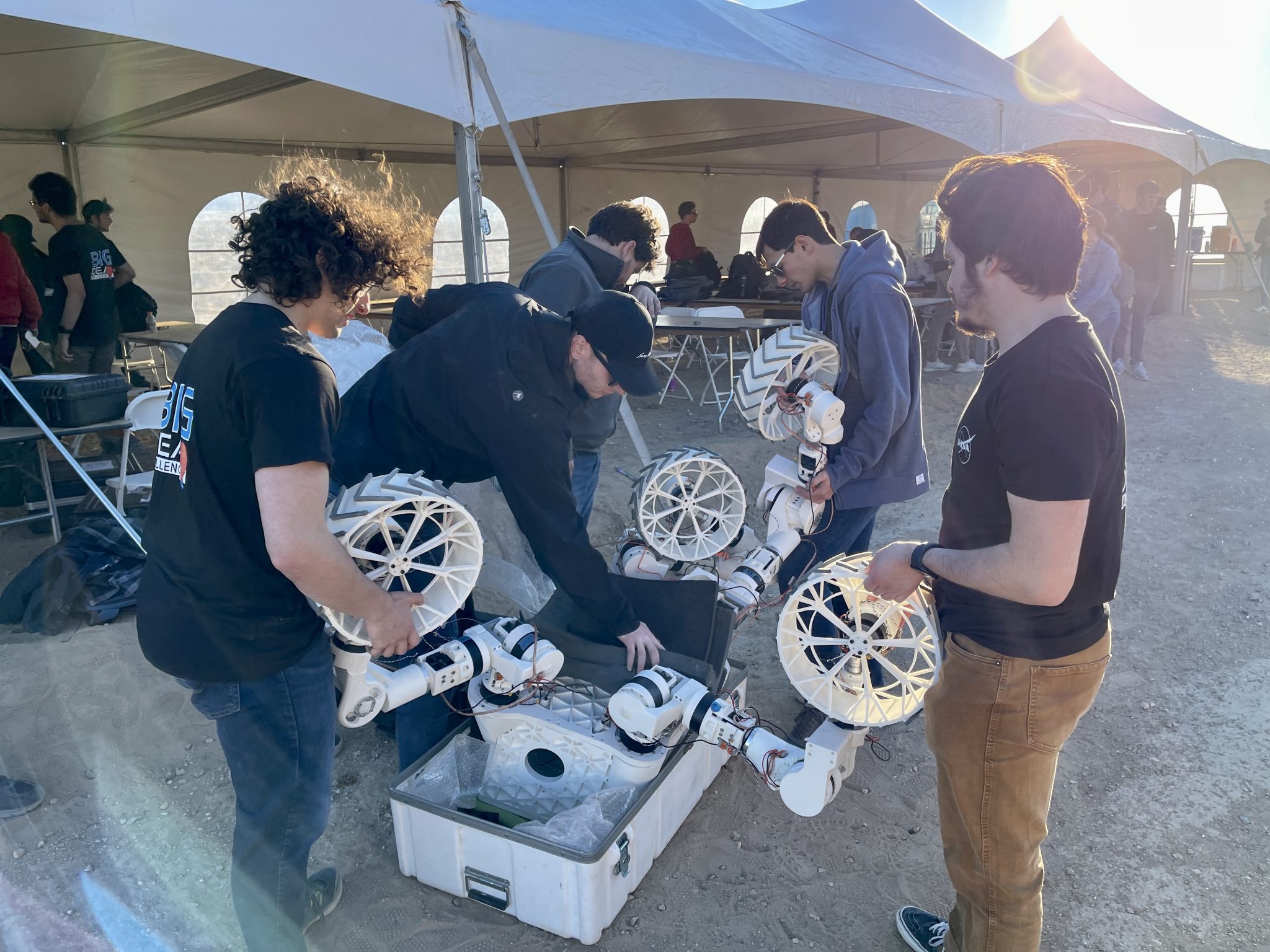
BIG IDEA CHALLENGE
The Breakthrough, Innovative, and Game-changing (BIG) Idea Challenge offers a real-world experience for university students in the development of the systems needed to support NASA’s space exploration goals. The BIG Idea Challenge seeks novel and robust ideas and applications relating to a new theme each year. Teams of undergraduate and graduate students submit a proposal package for review by a panel of NASA and industry subject matter experts. Selected teams advance to the next stage of the competition and submit full technical papers, posters, and proof-of-concept testing results to a judging panel in a face-to-face design review. Stipend awards are provided to facilitate full participation in the competition, including prototype development and testing. Participation is open to teams of undergraduate and graduate students at accredited U.S. based colleges and universities officially affiliated with their state's Space Grant Consortium, or by institutions partnering with an affiliated college or university.
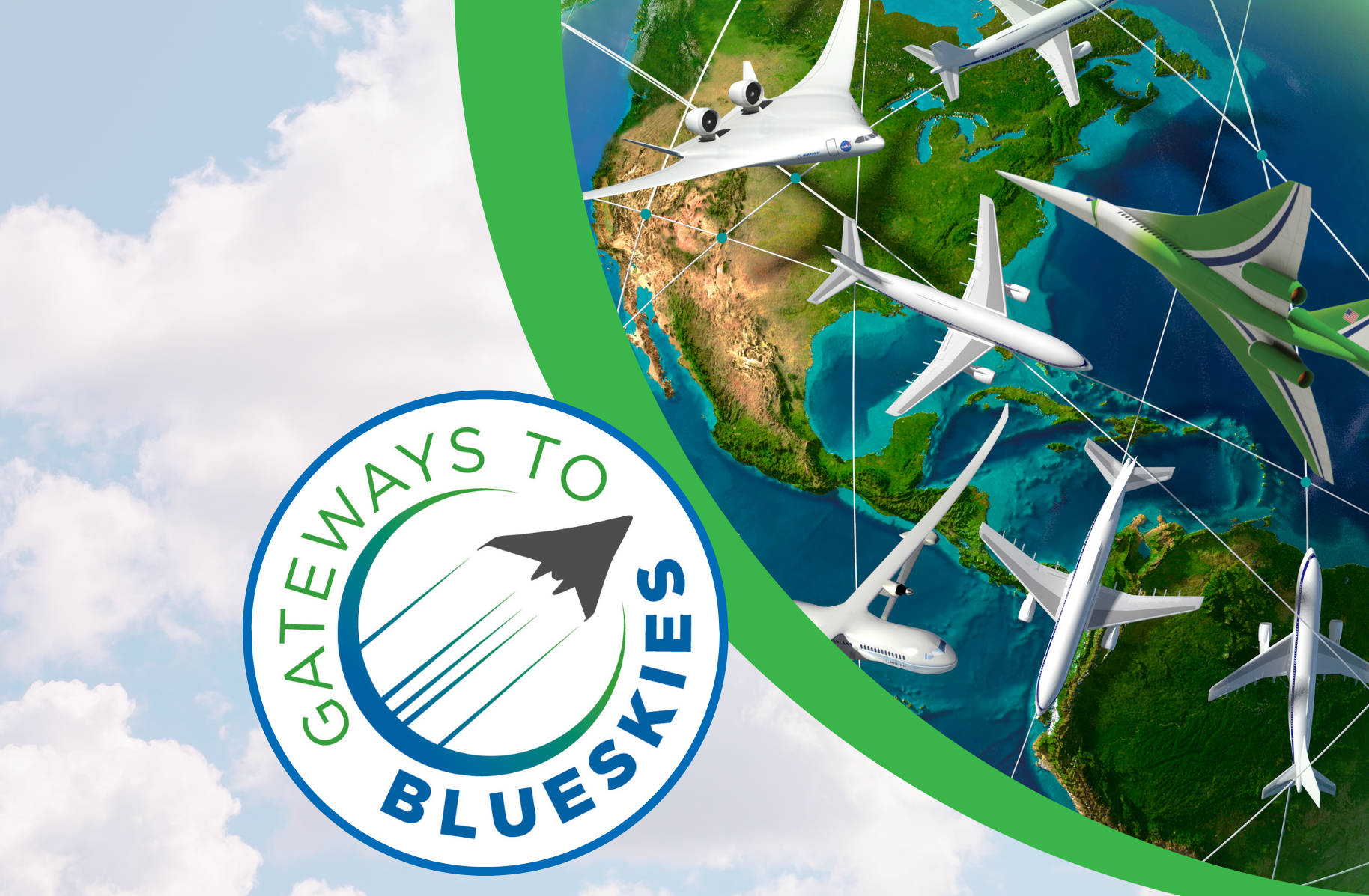
Gateways to blue skies competition
Airplanes will soon be using new fuels that are better for the environment and will likely have new designs that allow them to fly safer, faster, cleaner, and quieter. These advancements will cause rippling changes across the aviation industry. Through this competition, students of today will engage with solutions of tomorrow. College students of all ages, academic levels, and disciplines can participate in this exciting challenge sponsored by NASA’s Aeronautics Research Mission Directorate. Teams submit design proposals for review, with up to eight teams selected as finalists. Finalist teams will receive a stipend to facilitate full participation in the competition, which culminates with an onsite presentation forum at or near a NASA Aeronautics Center. Winning team members earn the grand prize of internships at NASA facilities nationwide.
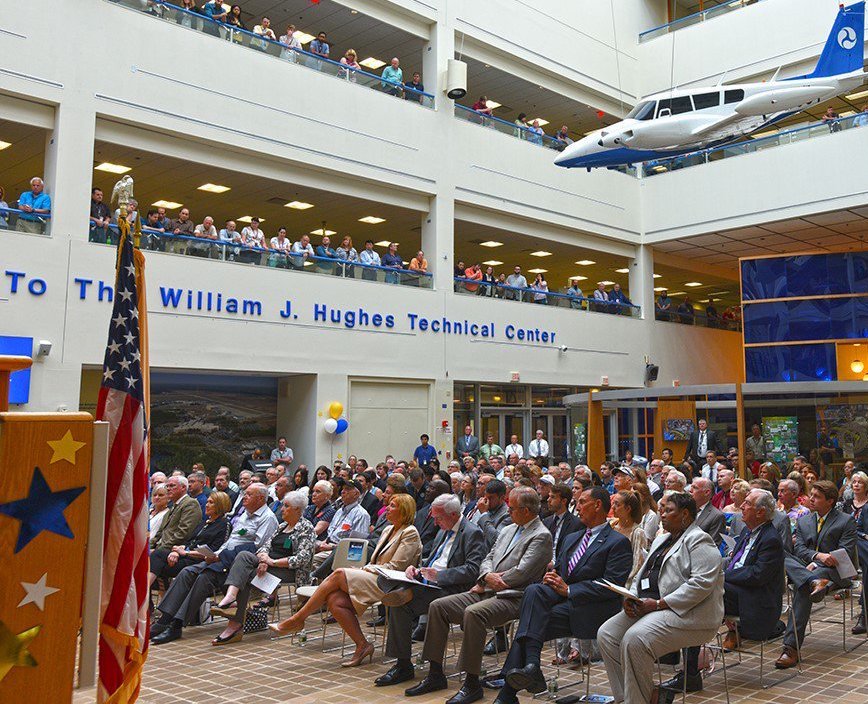
FAA Challenge Student Competition
The Federal Aviation Administration sponsors the FAA Challenge: Smart Airport Student Competition (“Smart Airport Challenge”) to recognize students with the ability to demonstrate innovative thinking focused on improving the efficiency and effectiveness of smart technology in and around the airport environment while enhancing the overall traveling experience. The FAA intends to incentivize university-level students at accredited U.S.-based colleges and universities to think creatively in developing solutions to transportation technology challenges while addressing the human factors aspects of the traveler’s experience, and to share those innovations with the broader community. For the 2021 Smart Airport Challenge, universities should consider the cutting-edge needs of the FAA and smart airports of the future, focusing on key emerging technology areas of health-smart airports, Unmanned Aerial Systems (UAS), data analytics, and autonomous robotics systems.
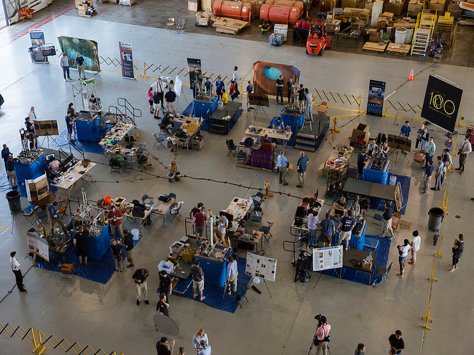
RASC-AL Special edition challenges
Periodically, Special Edition RASC-AL programs are established to elicit students’ fresh perspective on developing concepts that may provide full or partial solutions to specific design problems and challenges currently facing human space exploration. In the past, these special edition competitions have included design-build-test programs for subsystem and component level prototypes (i.e., the RASC-AL Exploration Robo-ops and RASC-AL Lunar Wheel Design challenges), as well as technology demonstrations for critical ISRU capabilities (i.e., the 2018 RASC-AL Special Edition: Mars Ice Challenge and the Moon to Mars Ice and Prospecting Challenge). Stipends are awarded to each finalist team to support the development of prototypes for the Special Edition Challenge.
Graduate Courses

NIA offers professional learning experiences for pre-service and in-service educators.
NIA’s Center for Integrative STEM Education (CISE) coordinates and facilitates courses within the McDaniel College STEM Instructional Leadership Program (SIL). This program was developed collaboratively with McDaniel College. Educators who complete the SIL program earn a McDaniel post-baccalaureate certificate and, for Maryland teachers, an endorsement in Leadership: PK-6 STEM. Course design follows research-based best practice incorporating active learning, job-embedded tasks, on-going and sustainable support, and reflective feedback. The courses can be delivered as hybrids or completely online and have also been modified for delivery for school-based professional learning communities.
Internships/Mentorships
NIA’s Education and Outreach team of award-winning project managers, educators, and multimedia producers designs and delivers innovative outreach products for students in grades K-12, at the undergraduate and graduate level, and for the general public. Internships provide students the opportunity to participate in either research or other experiential learning under the guidance of a mentor at NIA. These opportunities serve students by integrating interns with career professionals emphasizing mentor-directed, degree-related tasks.
The team supports the Center for Atmospheric Research and Education (CARE) at Hampton University (HU) by mentoring communications interns each semester from HU’s Scripps-Howard School of Journalism and Communication. This project, funded by NASA’s Minority University Research and Education Project (MUREP), places interns with NIA to demonstrate and utilize newly learned communication and marketing skills as tools for NIA and NASA education and public outreach efforts.
Principal Investigator
Shelley Spears
Director of Educational Outreach
National Institute of Aerospace

(757) 325-6732
